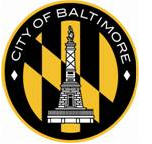Mayor Brandon M. Scott Announces $4 Million ARPA Initiative to Support Immigrant and Refugee Communities in Baltimore City
Wednesday Oct 12th, 2022

FOR IMMEDIATE RELEASE
The Baltimore New American Access Coalition (BNAAC) aims to improve access to health and social services for immigrant and refugee families.
BALTIMORE, MD. (Wednesday, October 12, 2022) -Today, Mayor Brandon M. Scott and Mayor's Office of Immigrant Affairs (MIMA) Director Catalina Rodriguez Lima announced the Baltimore New American Access Coalition (BNAAC), an initiative seeking to minimize the economic and social disparities faced by immigrant and refugee families. The initiative connects these communities to short- and long-term health and social resources to help them weather the COVID-19 pandemic and its economic impacts.
In line with Mayor Scott's commitment to using federal dollars to address the disparate impacts of the pandemic and directly produce more equitable outcomes for all Baltimoreans, the BNAAC initiative is made possible through an approximately $4 million allocation from the City's American Rescue Plan Act (ARPA) funds.
"The City of Baltimore is committed to providing resources to residents critically impacted by the aftermath of COVID-19," Mayor Brandon M. Scott said. "The BNAAC will ensure that traditionally underserved communities have equitable access to health and human services to help them make ends meet and ensure a higher quality-of-life for immigrant and refugee communities here in Baltimore. In order to be effective, we are using our ARPA funds in tandem with policy and programming to produce coordinated, comprehensive progress."
During COVID, immigrant and refugee families had fewer resources to sustain themselves financially through the pandemic as many were ineligible for unemployment benefits, the payment protection plan, stimulus checks, and child tax credits -- further exacerbating economic disparities within these communities.
Today, immigrant and refugee families continue to face a range of systemic barriers to accessing federal, state, and local health and social services, including program eligibility rules and lack of language access. Even families that qualify struggle to navigate complicated programs as these are not often available in languages other than English. This has been exacerbated by the limited bilingual capacity in public entities available to help residents with application forms and information.
In response, the BNAAC establishes a cadre of Benefits Navigators across four (4) community-based organizations (CBO) to help residents with limited English proficiency (LEP) navigate and access health and social resources based on immediate and long-term needs. Partner organizations were selected based on target communities and geography to meet New Americans where they reside.
- Catholic Charities Esperanza Center will support African foreign-born families concentrated in Northeast and foreign-born families citywide
The BNAAC will incorporate immigration legal services to educate families about their rights to access public programs. These include access to immigration clinics and consultations to dispel any myths and misinformation preventing them from applying to programs.
"New American families still struggle with the chilling effect of the Public Charge proposal, which sought to restrict immigrant families from receiving public benefits or risk compromising their immigration status," said Catalina Rodriguez Lima. "As such, many would rather forgo benefits-despite being eligible-due to fear of immigration consequences in the future. Having Benefit Navigators and immigration consults will help ease families' concerns when accessing critical support services like food, internet assistance, rental assistance, health care, and financial assistance."
Through this project, MIMA standardizes immigrant and refugee case management across participating CBOs. Lutheran Immigration and Refugee Services (LIRS) will serve as a technical assistance provider to access national best practices on immigrant and refugee case management. This will be critical as local case management models do not target immigrant and/or refugee populations living in Baltimore City. Through this partnership, Benefits Navigators will be trained on case management best practices, navigation of different government systems, and eligibility criteria based on immigrant status. Benefits Navigators are critical to overcoming barriers related to language and not knowing how to navigate benefits across government entities.
Quotes from Partners
"LIRS is thrilled to be part of the BNAAC to help new Americans get connected to vital city resources. Here in Baltimore and from coast to coast, immigrants and refugees are eager to join the workforce, contribute to their communities, and build a life. This program will be an important next step to help them, and our city succeed," said Christina McPherson, Associate Director for Integration from Lutheran Immigration and Refugee Services.
"Southeast CDC has been providing housing stability services to immigrant families in Baltimore City for many years, and through this work we are acutely aware of the many obstacles our clients face when trying to access help from assistance programs-programs for which they are often are eligible yet struggle to connect with due to language barriers, technology, confusion about documentation, or fear of immigration consequences. Immigrant families often need a strong case manager to overcome these obstacles, and we are grateful to MIMA for giving us the opportunity to do that work," said Kari Snyder, SECDC's Executive Director.
"CASA applauds the efforts our city has undertaken to address the full scope of the damage wrought by the COVID-19 pandemic in its recovery strategy. Through these and similar efforts specifically targeting the communities that have been disproportionately impacted by the pandemic, the City of Baltimore acknowledges the importance of addressing these challenges in an equitable manner for the benefit of all," said Gustavo Torres, CASA's Executive Director.
"We are very grateful to Mayor Scott for providing the International Rescue Committee with ARPA funding so we can continue to provide immigrants and refugees the critical services they need to secure housing, healthcare, education, and jobs," said Ruben Chandrasekar, IRC Baltimore, Executive Director.
"Esperanza Center is grateful to the Mayor's Office and to MIMA for its vision and efforts to launch BNAAC," said Matthew Dolamore, Director of the Catholic Charities Esperanza Center. "It is Esperanza's privilege to join this coalition to ensure our immigrant sisters and brothers have the necessary access to health and human resources to keep children, adults, and families safe."